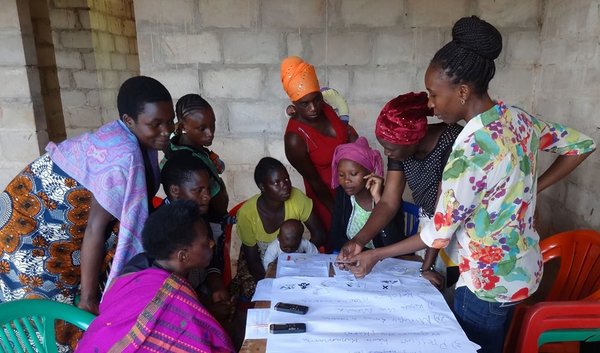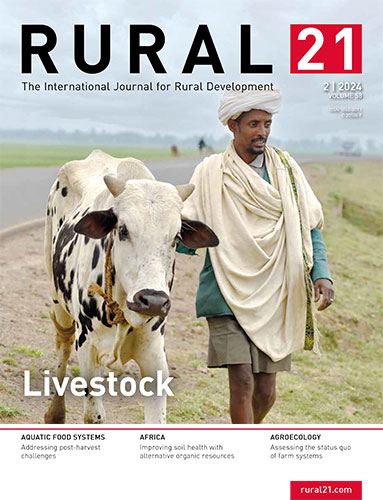 Read this article in French
Read this article in French- Share this article
- Subscribe to our newsletter
Development cooperation and research – a promising model
From 2012 to 2023, the research for development (r4d) programme, run by the SDC and the SNSF, funded research partnerships between Switzerland and countries in Africa, Asia and Latin America. These partnerships kick-started innovative initiatives and presented solutions that they then put on the political agenda. Many of the projects involved brought forth new knowledge and solutions that made a significant impact in the partner countries. With a total budget of CHF 97 million, the r4d programme supported 57 research projects in over 50 countries. The programme ended on the 25th April 2024.
The SDC and the SNSF have been in partnership for decades. They launched the r4d programme at the time when the Millennium Development Goals were giving way to the 17 Sustainable Development Goals (SDGs), amid negotiations for the 2030 Agenda.
The SDC aimed to contribute directly to the achievement of the SDGs with its research programme. Together with the SNSF, the SDC launched the pioneering r4d programme, which was "ahead of its time", as a recent external evaluation confirmed. The European Union then started a similarly designed programme: Horizon Europe.
Research focusing on health, food security social conflicts and ecosystems
Within the r4d programme, projects were implemented in the areas of health, food security, social conflicts, ecosystems, work and income. Innovative initiatives were launched, evidence-based solutions presented and put on the political agenda, and anchored locally, nationally or globally. Many of these projects brought forth new knowledge and solutions that have not only shaped the SDC's work but have also been effective in its partner countries.
The SDC's research programme allows innovative approaches and knowledge to be generated and tested. Innovation is always associated with greater risk, as not everything can be planned and the desired results may not be achieved. Experience has led the r4d programme to attach great importance to communicating and conveying research results in an understandable way, and it is essential to make these results accessible to the public at large (open source).
The r4d programme saw the SDC and the SNSF support a total of 57 research projects in over 50 countries. Partnerships and networks between Switzerland and the Global South that are still active today emerged from these projects. Many of the latter have found follow-up funding or are now being continued within a different framework.
For example, a project in Kenya identified measures to contain invasive plants that siphon off precious water from the soil and harm farmland and livestock. This project led to a national strategy, adopted by the government, for the eradication of invasive trees in Kenya.
Launch of the successor of “r4d”, the Solution-oriented Research for Development (SOR4D) programme
Switzerland's significant North-South research community relies on suitable funding opportunities, such as the r4d programme or its successor, the Solution-oriented Research for Development (SOR4D) programme, which was recently launched. There is, for example, a lively exchange with the Commission for Research Partnerships with Developing Countries (KFPE), which helps to align the SDC-SNSF research programmes with the needs of researchers.
While building on the insights gained from r4d, the successor, the SOR4D programme, focuses to an even greater extent on the actual impact in the partner countries. The difference is that SOR4D is no longer "only" interdisciplinary, but also transdisciplinary. Transdisciplinary means that interdisciplinary research collaboration is complemented by collaboration with actors from outside the scientific community.
The aim is to facilitate learning processes between science and society in order to generate knowledge and solutions that can help to better cope with, overcome or prevent societal challenges. Accordingly, SOR4D focuses even more strongly on concrete solutions and the potential for upscaling, i.e. implementing or applying research findings outside of science.
(SDC/wi)
This article is an extract of an interview with Odile Robert, Head of Analysis and research section at the SDC.
More information:





Add a comment
Be the First to Comment